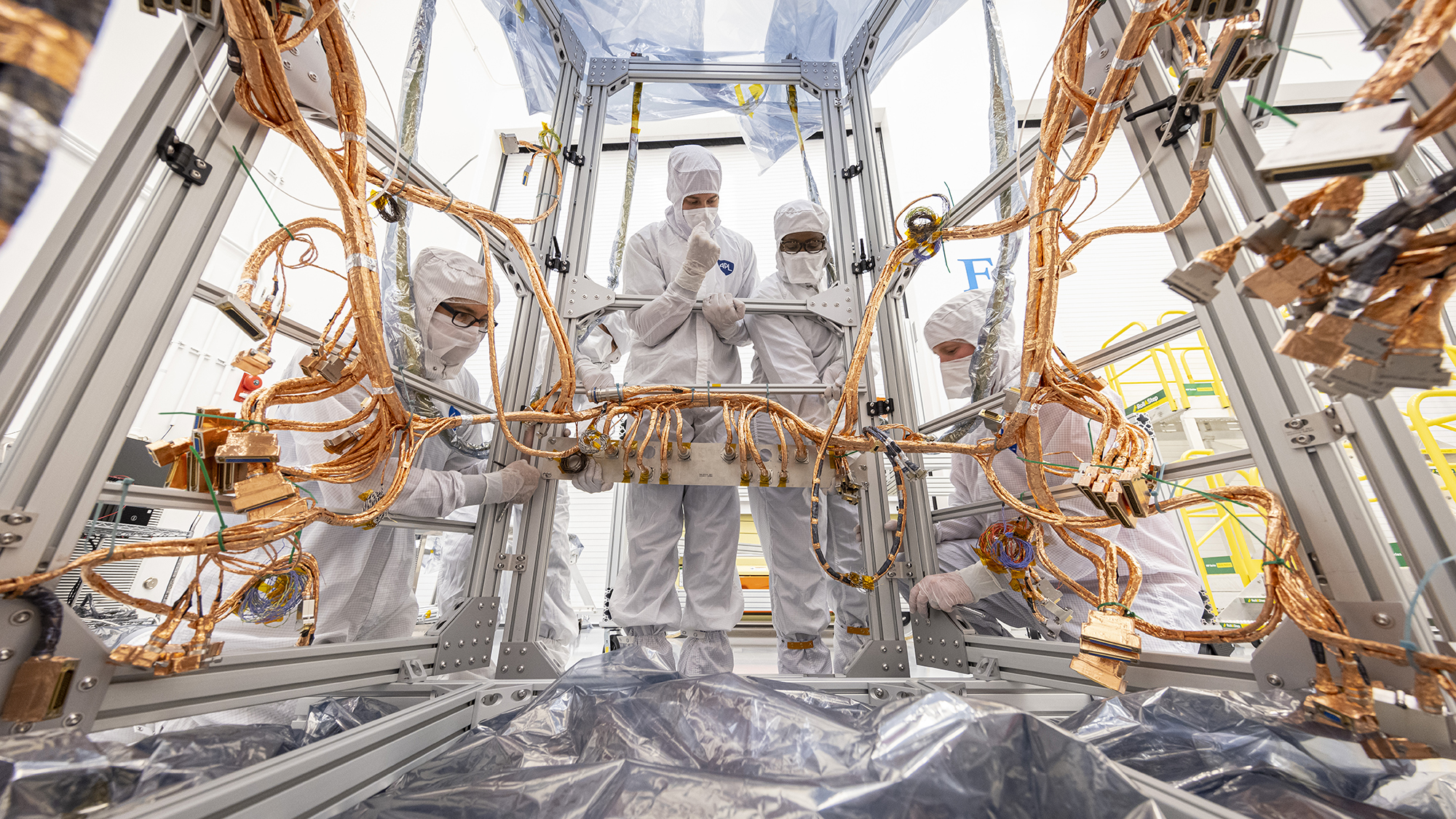

The odds that you will ever travel to one of Jupiter’s moons is next-to-zero, but getting your name to icy Europa is only a few keystrokes away. Earlier this month, NASA and the Library of Congress announced their collaboration, Message in a Bottle—a project offering anyone the opportunity to co-sign their name alongside an original poem penned by US Poet Laureate Ada Limón.
In doing so, each signee reserves a free, guaranteed spot for their name to be laser etched into a microchip mounted aboard the solar powered Europa Clipper robotic spacecraft. Following its October 2024 scheduled launch, participants’ names will then travel the approximately 6-year, 1.8-billion-mile voyage alongside Limón’s new, moon-inspired ode, “In Praise of Mystery” also to be engraved onto Europa Clipper.
[Related: We just got our most detailed look yet at Jupiter’s icy moon, Europa.]
Europa’s icy surface alongside the likely existence of an internal ocean have long intrigued scientists as potential locations that could support extraterrestrial life. Although it won’t actually touch down on the moon’s surface, Europa Clipper’s dozens of flybys will allow it to amass detailed information on its composition, geology, and vaporous geyser eruptions.
According to NASA, Europa Clipper will span roughly 100 feet after its solar arrays are deployed, and weigh-in at approximately 13,000 pounds—half of which is solely the propellant needed to get it to its final destination. Following its scheduled October 2024 launch from Florida’s Kennedy Space Center aboard a SpaceX Falcon Heavy Rocket, the craft will first travel around Mars before soaring once again past Earth to gain some much needed “gravity assist” momentum. After another three years of travel, Clipper will pass by Europa almost 50 times beginning in 2030, transmitting data back home while observing “nearly the entire” moon to gain a better sense of its potential to support life.

This isn’t the first time NASA has encouraged the public to add their names to objects bound for space, including those aboard Artemis I, as well the Preservation Rover and InSight on their multiple trips to Mars. In 1977, Voyager 1 and 2 both launched with gold-plated phonographic records aboard featuring 90 minutes of music, including a concerto by Bach and Chuck Berry’s “Johnny B. Goode.”
At the time of writing, over 305,000 people from nearly every nation across the world have already signed the Europa Clipper’s roster, and earthbound participants have until the end of 2023 to enter in their names. Until then, you can also tune into regular livestreams of the Europa Clipper’s construction and assembly.
